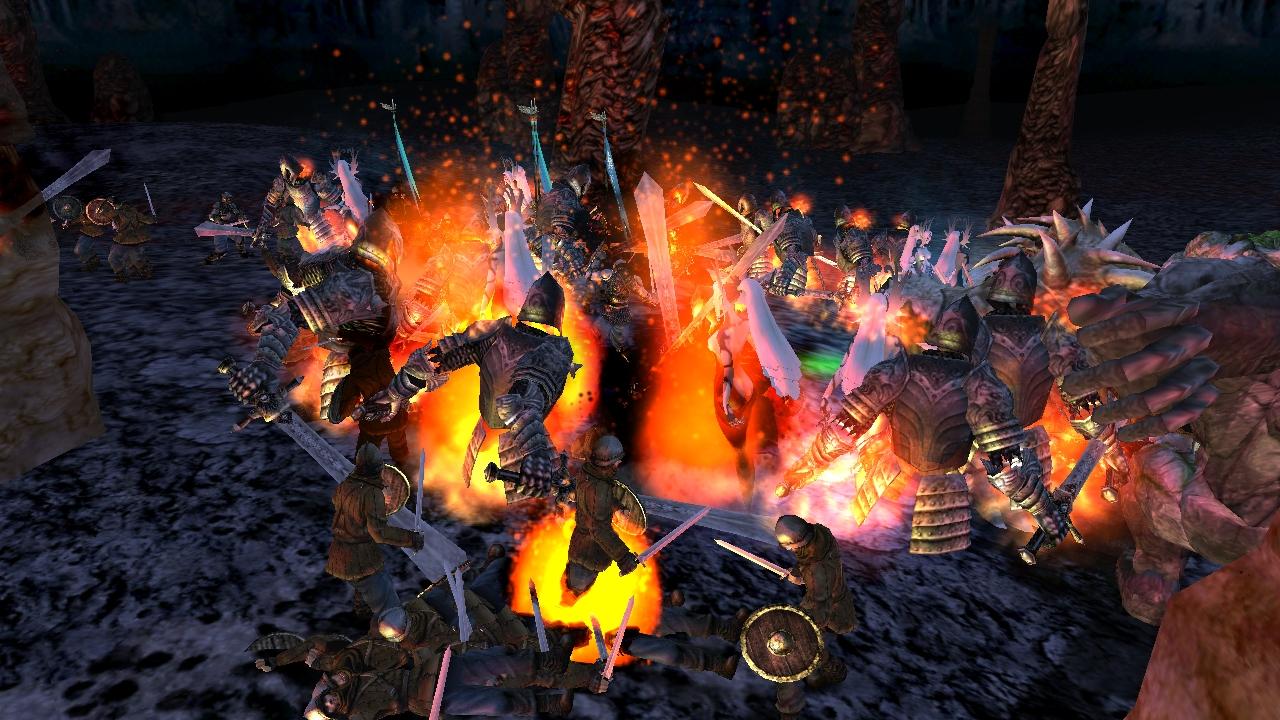Why you can trust GamesRadar+
It's a not-highly-publicised fact that Kingdom Under Fire: The Crusaders went through (well, across one corner of) development hell on its route to the shelves.
Three changes of publisher meant that the game that finally hit stores was missing a few key features that Phantagram felt would really push it into the realms of excellence.
Heroes aims to refine the original's still brilliant concept to earn the Kingdom Under Fire series the place in gaming history its predecessor failed to secure. But has it managed it this time?
We Xbox gamers have very little experience of war. "What!?" we hear you cry (with our amazingly developed sense of hearing), "I've been in more virtual wars than Ron Jeremy's been in female nether regions!'"
Well think again. That was combat. There are only a handful of Xbox titles that deal with actual strategy. Real Time Strategy (RTS) is a sadly underrated genre.
Of course, not everyone thinks this way, which has been the visible genius of Phantagram's vision from the start to marry the accessibility of wildly exciting action gaming with the intelligence and depth of a full RTS.
In that respect, little has changed since Crusaders. You control one of seven new heroes (compared to the original game's three) and head out to discover the role each one plays in an intriguing and detailed overarching story.
Between missions, the game takes you to different towns on a downsized map, and shows you where all the battle hot spots on the continent are.
This lets you develop a real sense of the geography of the war, and prevents the plot from becoming a sideshow in the proceedings - which is convenient, as it's genuinely engaging, and reaches some significant (if rather sentimental) conclusions.
The heroes serve an additional plot function by providing a window into the private proceedings of the world - where normally we might expect a dramatic cutscene, here much is learned from the dialogue between characters, often during missions.
This personal aspect generates an empathy that translates straight into the gameplay, giving you motive and desire to win - it's clear from the start that Phantagram wants you to actually care.
There's an incredible amount of depth in Heroes, even outside of battles. Crucially, you can now upgrade your troops by giving their commander new skills, which ultimately can completely redefine the jobs and abilities of whole armies by spending the experience points earned in battle.
A small unit of archers at the start of the game might be an airborne bomber squadron at the end - it's down to your playing style and the units that complement your skills as a leader.
Heroes has more battles to be fought than actually need to be won, giving you room to manoeuvre if you need more experience points before a crunch battle. Clever.
Since the plot is a prologue for Crusaders, everything works brilliantly for newcomers - there's no need for prior knowledge to understand what's going on, but for old hands, action wise, a pretty much identical formula remains.
You direct your different sets of troops (archers, cavalry, siege weapons and the like) by either selecting them and pointing them in the direction you want to go, or by setting waypoints on the mini-map.
Missions are varied and can involve anything from sieges to rescue gambits, but ultimately, it tends to amount to destroying everything on the map. And with 3,000 plus units in a mission, that's no mean feat.
The units controlled by your hero work slightly differently - they can utilise destructive and curative spells right up until their platoon enters battle, at which point you stop ordering troops directly, and enter the fray yourself in glorious, close up hack-'n'-slash action.
A few new elements change things though - the combo system is far more accessible than it used to be, so you can get right in the bloody thick of it and do some real damage with your hero from early on.
This has a knock-on effect - the morale and aggressiveness of your troops is directly affected by your own behaviour, success and failure; a lost fight or a cowardly escape could spell disaster for more than just your hero.
It's a great system that serves both to draw you into the combat and also to give newcomers a less tactical solution to solving fights - get stuck in, and there's a good chance your troops will rally and respond in kind.
More info
| Genre | Action |
| Description | This score isn't a don't buy, it's a 'yes, get it - but careful, it might bite.' In the end, you will enjoy this. Just like us. |
| Platform | "Xbox" |
| US censor rating | "Mature" |
| UK censor rating | "" |
| Release date | 1 January 1970 (US), 1 January 1970 (UK) |



